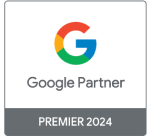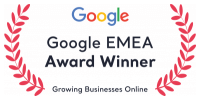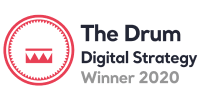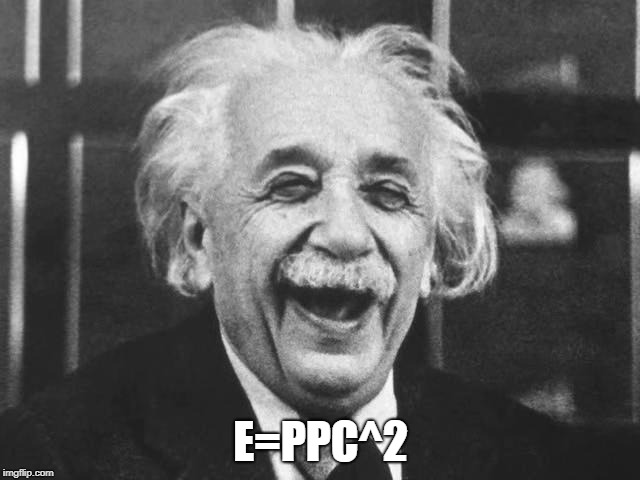
It’s always tricky when graduates venture out into the big corporate world, as they’re left with all sorts of emotions: the freedom of no longer spending all hours of the day in the library revising, the excitement of starting a career and earning money, yet at the same time feeling like they’re stuck in ‘limbo’ – the space and time between graduating and starting a career.
For me, ‘limbo’ lasted half a year, as I had absolutely no idea what I wanted to do. Unfortunately, there aren’t a lot of open opportunities to work in my line of study. My immediate options were to continue on as an academic or try and find work in energy production facilities. Now, I’ve always felt that after spending 21 years in schools, colleges and university, the last thing I wanted to do once I graduated was to carry on studying. I’ll admit that I applied for dozens of roles to work in energy research and powerplants, but that was simply due to influence from my peers, who would mention that that was ‘the right path’ for me.
After six months of half-heartedly applying for roles in research facilities, I was invited to work as a junior search engine marketer by a relative of mine who runs a small agency, I remember him saying to me: “digital marketing isn’t a marketer’s game anymore, it’s opening up to analytical minds like yours”. Naturally I was intrigued, and soon found myself working an entry-level job in digital marketing.
I spent months learning the concepts of the trade, I read far more books then, than during my time at uni, and quickly developed a genuine interest. I explored the various disciplines in detail (PPC, SEO, PR, content, strategy) and practised them whilst working for my uncle. But one specialism really took ahold of me: PPC, also commonly referred to as paid media or paid search. I mean, the job literally practices mathematics and data analysis on a regular basis. I was astonished that this line of work was never introduced to me throughout my years of studying physics and maths.
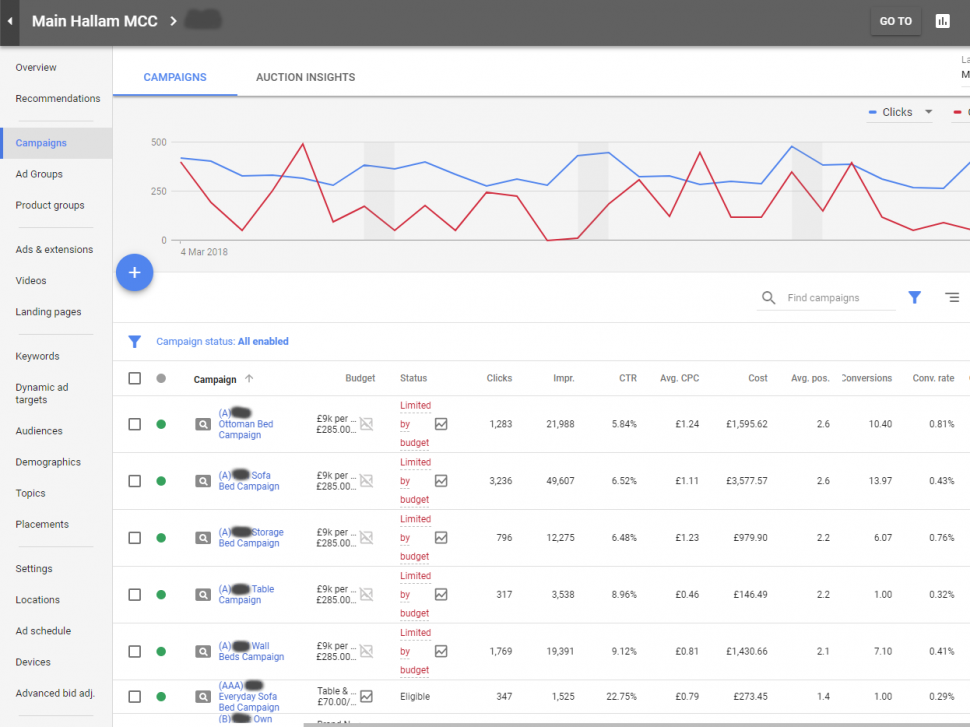
After spending half a year developing myself as a digital marketer at my uncle’s agency, I felt the time was right for me to pursue a specialist career in PPC. That was when I came across Hallam, a highly regarded digital marketing agency which provided expert paid media services. I knew I had to get in and join the team. I sent a speculative application and within a month, I was part of Hallam. Since then I have never looked back.
One of the traits I possess and I imagine I speak for most in the science community, is that I enjoy testing and refining. Always looking to improve at every iteration, no matter how small the improvement is, that behaviour is hard-wired into me. Now, imagine a situation where there are hundreds of different variables that constitute the success of an online marketing campaign, where each variable is an opportunity to test and refine. This is precisely the nature of my job here at Hallam as a PPC Executive.
Of course, there are many different ‘niches’ within PPC if you will: there are creative aspects such as writing advert copy, designing wonderful landing pages and strategising the ideal user experience. But I’m finding my set of skills particularly valuable in the technical, data analysis side of things. A great example would be to speak of a recent project I’ve been getting my teeth into, which calculates the most effective way to invest advertising budget with regards to seasonal trends.
Many businesses employ agencies to lead their online advertising efforts, and usually a set monthly budget is established. I’ve never been comfortable with this approach because in the back of my mind are thoughts like: “well, perhaps you ought to be spreading your yearly budget more wisely, your camping gear is far more likely to sell in the summer than in winter”. Admittedly, this example is kind of a no-brainer, a simple Google Trends check will tell you that the interest in the keyword ‘camping gear’ peaks in the summer.
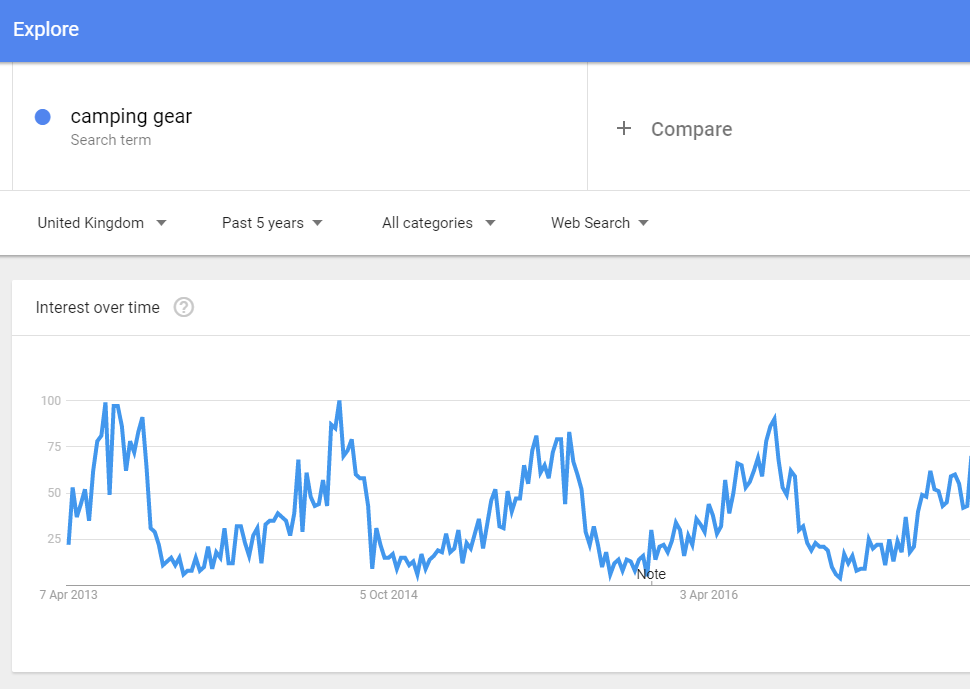
However, wouldn’t it be foolish to assume that the profitability of that keyword rose in accordance with interest? Just because there are far more searches for ‘camping gear’ in the summer than winter, doesn’t necessarily mean that it becomes more profitable. This is where analysing data such as conversion rates and average order value against the months of the year comes into play. You’ll realise that suddenly, there is a multitude of influencing factors that contribute to the general success of advertising or bidding on a particular keyword. Your AdWords account is likely to be targeting several keywords, if not hundreds or thousands, and that’s when developing cool models can really take your account to the next level.
I really enjoy this part of my job!

This is a photo I took five minutes ago of my blackboard here in the office.
Look, digital marketing is really cool. The point of this post is to enlighten those who are analytically minded about the opportunities that lie within digital marketing. I’ve only spoken very briefly about what I do here at Hallam, but I hope it’s enough to engage fellow mathematics and physics graduates out there to consider a career in digital.
I encourage my readers to get in touch with me for more information, or for a general chit-chat about all things PPC and digital marketing. The best place to get in touch with me would be via LinkedIn or leave a comment below!
Nuclear Physics Degree to PPC
Many of you are probably thinking: “a career in marketing, with a degree in physics?”, and you're not alone for asking that. However, I’d like to detail the reasons why I’ve fallen in love with digital marketing and more specifically, paid media.
Published on:

